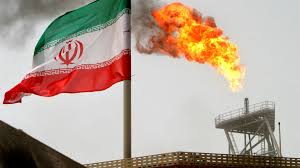In US a significant policy shift, the United States has allowed the waiver permitting Iraq to purchase electricity from Iran to expire. This decision, part of the Trump administration’s “maximum pressure” campaign on Iran, aims to curb Iran’s economic activities and nuclear ambitions. The move has raised concerns in Iraq, which heavily relies on Iranian energy imports to meet its electricity needs.
Background of the Waiver
The waiver, initially granted in 2018, allowed Iraq to import electricity from Iran without violating U.S. sanctions. This arrangement was crucial for Iraq, as its domestic energy infrastructure has struggled to meet the growing demand for electricity. The waiver was renewed periodically, with the most recent extension expiring in March 2025.
Economic Implications of the Waiver End
The end of the U.S. waiver for Iraq to buy Iranian electricity is expected to have far-reaching economic consequences. Electricity shortages can disrupt industries, slow down manufacturing, and affect daily life for millions of Iraqis. Small and medium enterprises, which rely on consistent power supply, may face increased costs for backup energy solutions such as generators, raising operational expenses. In turn, this can impact employment and inflation, creating further economic pressure on an already fragile economy.
Political Consequences in Iraq
The U.S. decision also places Iraq’s political leadership under scrutiny. Baghdad faces the challenge of balancing its ties with Washington and maintaining a practical relationship with Tehran. Many Iraqi politicians view Iranian energy imports as essential for maintaining stability and ensuring citizens have access to electricity. The waiver’s expiration could intensify political debates within the Iraqi parliament, influencing public perception and domestic policy decisions.
Potential Alternatives for Iraq
To address the looming energy gap, Iraq is exploring several alternative measures. These include expanding domestic power generation through new natural gas plants, modernizing the electricity grid, and investing in renewable energy such as solar and wind. Additionally, Iraq could diversify electricity imports by engaging with Gulf countries or Turkey, though this requires negotiating cross-border agreements and improving transmission infrastructure. While these measures could eventually reduce dependence on Iran, implementation is likely to take years, leaving short-term challenges for the country.

Regional Impact
Regionally, the waiver’s expiration signals a broader shift in U.S. policy toward Iran and its neighbors. Countries dependent on Iranian energy may reassess their strategies to avoid potential sanctions, while Iran may respond diplomatically or economically to defend its regional influence. The development could also affect energy markets in the Middle East, with electricity prices and energy trade dynamics adjusting to new realities.
Social Impact on Iraqi Citizens
For ordinary Iraqis, the waiver’s end may mean more frequent power outages, especially during peak summer months. Hospitals, schools, and public services will need contingency plans to maintain operations. Citizens may also face higher electricity bills if temporary solutions like diesel generators become necessary. This situation highlights the direct link between international policy decisions and the everyday lives of millions of people.
Reasons for Ending the Waiver
The U.S. administration’s decision to end the waiver aligns with its broader strategy to isolate Iran economically and diplomatically. By removing the waiver, the U.S. aims to pressure Iran into negotiations over its nuclear program and regional activities. Additionally, the U.S. encourages Iraq to reduce its dependence on Iranian energy sources and seek alternative solutions.
Impact on Iraq’s Energy Supply
Iraq’s energy sector faces immediate challenges due to the expiration of the waiver. Iranian electricity imports constituted a significant portion of Iraq’s power supply, and their removal has led to power shortages, particularly during peak demand periods. The Iraqi government is exploring alternative energy sources, including domestic production and imports from other countries, to mitigate the impact.
Iraq’s Response and Future Plans
In response to the energy crisis, Iraq is accelerating efforts to enhance its energy infrastructure. This includes expanding domestic power generation capacity, investing in renewable energy projects, and seeking energy imports from neighboring countries. However, these initiatives require time and significant investment to materialize.
Regional and Global Reactions
The U.S. decision has elicited mixed reactions from the international community. Some countries support the move as a necessary step to address Iran’s nuclear program, while others express concern over the potential humanitarian impact on Iraq’s population. The situation underscores the complex interplay between energy security, international diplomacy, and regional stability.
Conclusion
The expiration of the U.S. waiver for Iraq to purchase electricity from Iran marks a pivotal moment in the region’s energy and political landscape. As Iraq navigates the challenges posed by this development, the international community watches closely, recognizing the broader implications for energy policy and geopolitical relations.
Do follow us: Instagram
Read More: Qatar Mediates Talks Between Congo and Rwanda Amid Rising Rebel Activity



